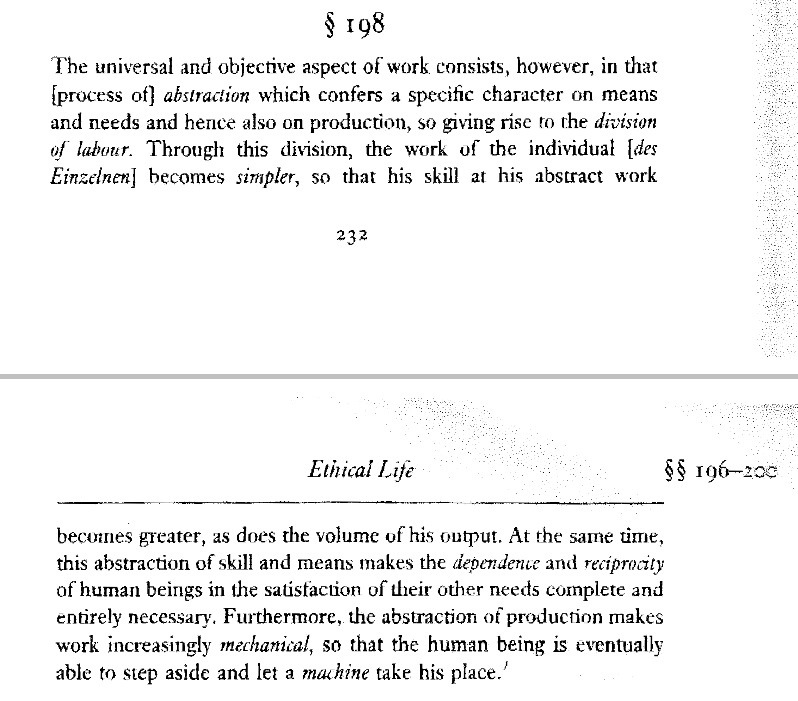You might also want to read a more mature and circumspect Hegel’s reflections on desire, freedom, particularity and equality; here not in his Phenomenologie des Geistes, but from Philosophie des Rechts, from §§186-198 (GWF Hegel “Civil Society,” Philosophy of Right). In Phenomenologie des Geistes (1807), evidently with the Saint-Domingue (Haitian) Revolution in mind, Hegel is driven by the conflict between the slave and the master. In 1820, Hegel’s mind was elsewhere. Evidently he was thinking about inequality and unfreedom in civil society [burgerliche Gesellschaft]. To resolve the conflict between particularity of my desire and the object of my desire, which is an other’s particularity, Hegel no longer contemplates a struggle for pure recognition; rather does he imagine a formation [Bildung] in which I am dependent on others and in which others are dependent on me and in which, therefore, I come to recognize our mutual dependence both to produce the means to satisfy our own needs, but also I come to recognize how this mutual dependence illuminates the path to a freedom that is social:

From this latter vantage point, the struggle to death for pure recognition is superseded by mutual recognition not in purely formal, legal “opportunity,” but substantively in the emancipation of the time stolen from us in labour.